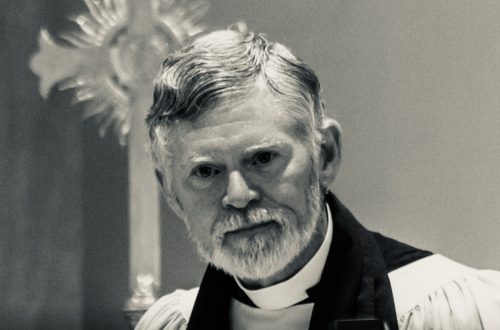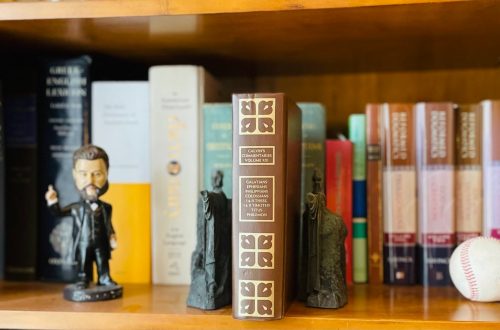 In yesterday’s New York Times, the Dalai Lama, Tenzin Gyatso, called on religious believers of all stripes to “respect, admire and appreciate other traditions.” In doing so, he explained how he has learned from and been inspired by Christianity. He writes:
In yesterday’s New York Times, the Dalai Lama, Tenzin Gyatso, called on religious believers of all stripes to “respect, admire and appreciate other traditions.” In doing so, he explained how he has learned from and been inspired by Christianity. He writes:
“In my readings of the New Testament, I find myself inspired by Jesus’ acts of compassion. His miracle of the loaves and fishes, his healing and his teaching are all motivated by the desire to relieve suffering.”
I am grateful that we live in a place in which people from diverse religious backgrounds can peacefully discuss their differences in the public square. And who doesn’t appreciate the Dalai Lama’s irenic tone in this essay? That being said, the Jesus that the Dalai Lama describes in these few short lines is not the Jesus of the Bible.
He contends that the motive of Jesus’ miracles was the desire to relieve human suffering. But I think that the Dalai Lama has distorted the real focus of Jesus’ compassion. Consider for instance just one of the examples that he points to—the feeding of the five thousand. It is the only miracle of Jesus recorded in all four Gospels (Matthew 14:13-21; Mark 6:32-44; Luke 9:10b-17; John 6:1-15). Matthew and Mark both say that Jesus looked out over the multitude and had “compassion” on them (Matthew 14:14; Mark 6:34).
But Mark’s account is the only one that cites an explicit motive for Jesus’ compassion: “because they were like sheep without a shepherd; and he began to teach them many things” (Mark 6:34). The text says that Jesus’ compassion toward them was rooted in his concern for their spiritual well-being, not merely their physical well-being. At best, Jesus’ concern to fill empty stomachs was a penultimate concern, not an ultimate one. They needed a Messiah and a Savior, and the text identifies this need as the primary basis of Jesus’ compassion. There is no indication that Jesus gave them food because they were destitute. Rather, Jesus didn’t want the crowds dispersed merely because they didn’t pack a lunch. Jesus fed them so that they would have everything that they needed to continue under his teaching (Mark 6:34).
It is John’s gospel that actually gives us what Jesus taught them after he fed them. John makes it clear that the meaning of the feeding of the five thousand wasn’t merely to relieve physical hunger. That is why Jesus says, “Do not work for the food which perishes, but for the food which endures to eternal life” (John 6:27). Jesus actually reproves them for their continuing desire for physical food and for missing the point of the miracle. The point of the miracle was to whet their appetite for “true bread,” and Jesus presents himself as that bread: “I am the bread of life; he who comes to Me shall not hunger, and he who believes in Me shall never thirst” (John 6:35). So you see that Jesus’ main motive in feeding them was to give them a signal about himself. He wanted them to hunger and thirst for their Messiah.
The Dalai Lama misses the focus and the purpose of Jesus’ compassion, and for this reason he’s not really talking about the biblical Jesus. Jesus cannot be reduced to a compassionate miracle-worker, nor can he be dumbed-down and pressed into the service of ecumenism. He is the focus of the miracles, and he aims to call people to exclusive allegiance to himself and his gospel. To miss that is to miss everything. Sadly, that’s what the Dalai Lama has done.




6 Comments
Donald Johnson
I read the article and I did not see where he claimed to follow Jesus.
What he DID do in a short article is try to point out a common thread of compassion among major religions. That is, there can be common points of perspective and discussion among adherents of various religions and that one such point is compassion, despite all the differences.
Ben
“Jesus cannot be reduced to a compassionate miracle-worker, nor can he be dumbed-down and pressed into the service of ecumenism.”
I would also strongly argue that Jesus cannot be reduced to merely spiritual concerns. Hence, I would say that a “penultimate concern” of caring for the needy is a false dichotomy. The kingdom of God is intensely spiritual AND physical.
John Holmberg
Amen to Ben in #2. The spiritual vs. physical gospel has been fought for too long, Denny, and I’m afraid that your post here comes across as fighting the same old battles. The basic gist is “the spiritual is the most important, so do that; the physical is not as important.” That’s a false dichotomy. You’re taking one aspect of Jesus’ teaching and making it out to be the ONLY one, or at least the MAIN one. I’m afraid the people who solely focus on the “spiritual” side of it are just as wrong as the Dalai Lama, and are thus not really talking about “the biblical Jesus.”
alisha
People “god is one”. No matter what all of them comes on earth to preach people to be a good human. Religions, beliefs are created by we human, we got to know that all gods are same.
dvrdannavvet
His Holiness referred to Jesus’ desire to relieve suffering.
Did Jesus not relieve the spiritual suffering of those he both fed and taught?
Are you so caught up in semantics as to entirely miss the fact that Jesus and His Holiness are on the ‘same page’?
Jake
If “Christians” can’t devote their lives to relieving suffering the way the Dalai Lama has, then how can they expect to spend eternity in a heaven centered around no more suffering?
The Dalai Lama gets it, Jesus got it. Too bad many Christians don’t. I suggest you read Matthew 25:40 again.